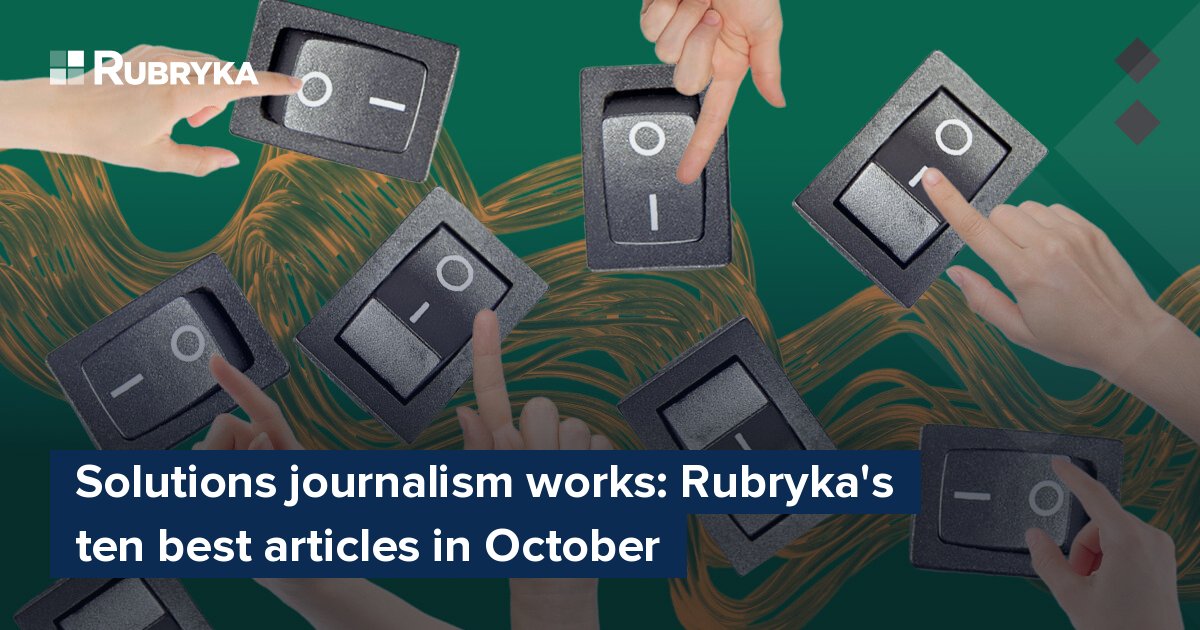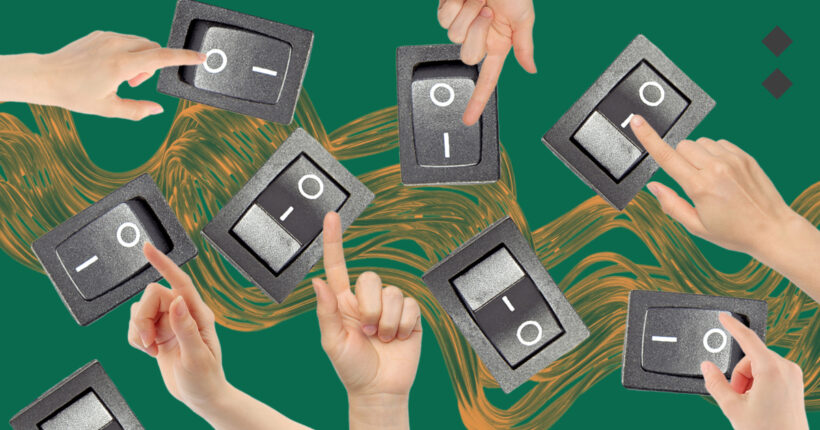
"Friends in the Yard"
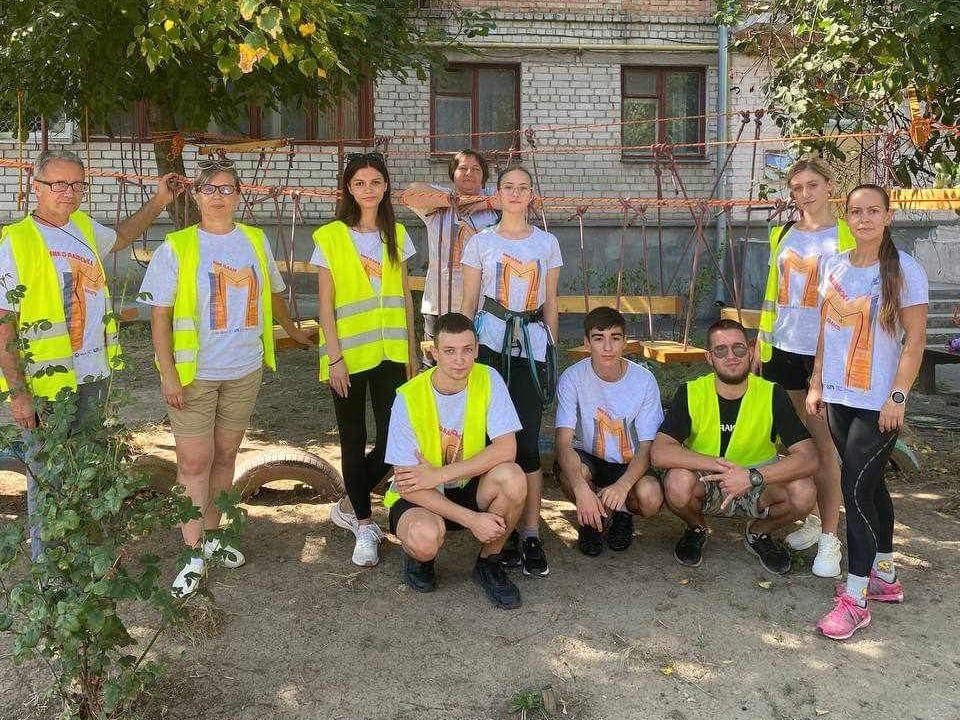
The "Friends in the Yard" project team. Photo courtesy of Yulia Oliinyk
In recent years, it's become increasingly more challenging for Ukrainian children to socialize. The pandemic and the war have taken away their chances to meet and make friends with their peers. In Mykolaiv, a southern city in Ukraine, one nonprofit devised a simple yet effective solution to tackle this issue. The volunteers organize small celebrations and events with rope parks, bicycles, mazes, lively music, and snacks for kids and their parents right in local yards to help neighbors get to know each other. Rubryka shares the story of the "Friends in the Yard" initiative.
How do "eRobota" grants work?
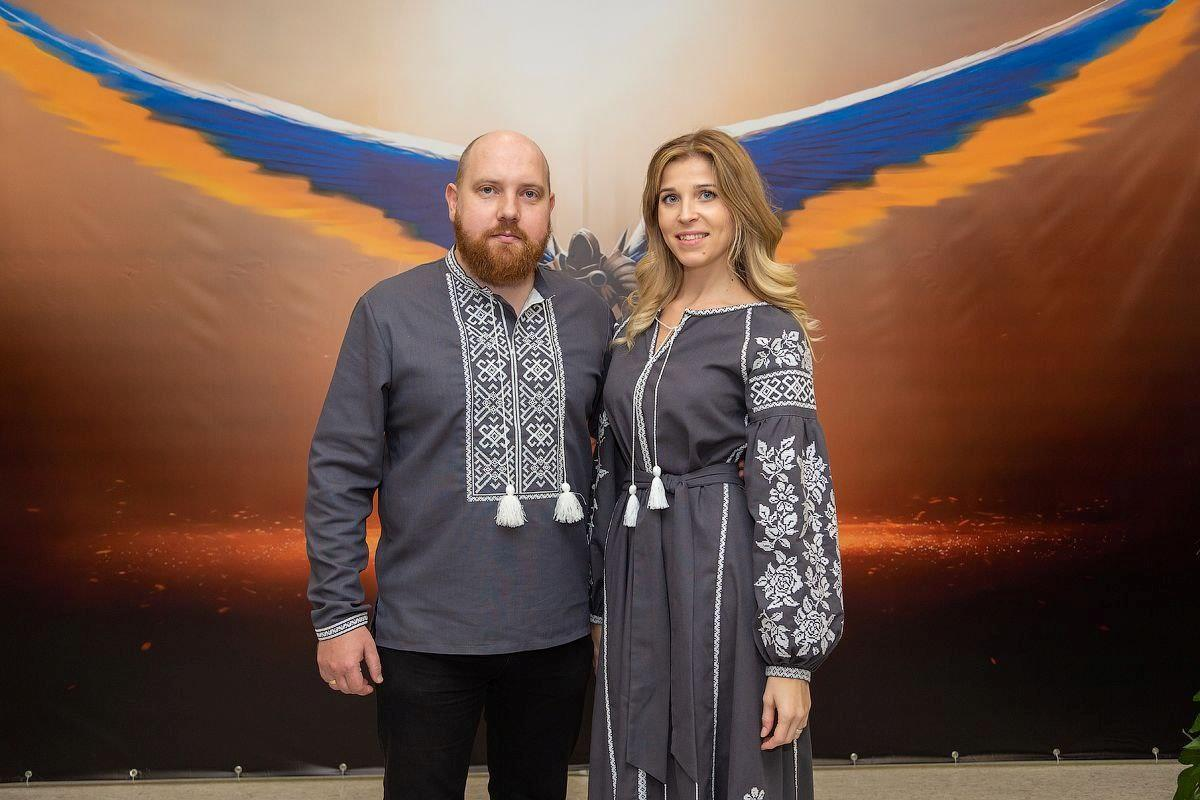
Oleksandr and Yana Tkachuk. Photo: Ministry of Economy of Ukraine
At the start of the full-scale invasion, Ukrainian businesses faced numerous challenges. Some companies had to relocate production, while others were destroyed or occupied. Some business owners left the country, closed their businesses, or couldn't quickly adapt to the new conditions. In one way or another, the entire Ukrainian business sector experienced losses.
In response, in July 2022, amid ongoing hostilities, the government launched the eRobota grant project. This initiative allowed anyone to receive funding to start or grow their own business. If the recipient creates the required number of jobs, uses the funds for specified purposes, and pays taxes, the grant does not need to be repaid. Rubryka spoke with three entrepreneurs who received eRobota grants to find out if it's really that simple.
All-women teams in Ukraine defy stereotypes and rebuild homes destroyed by the war
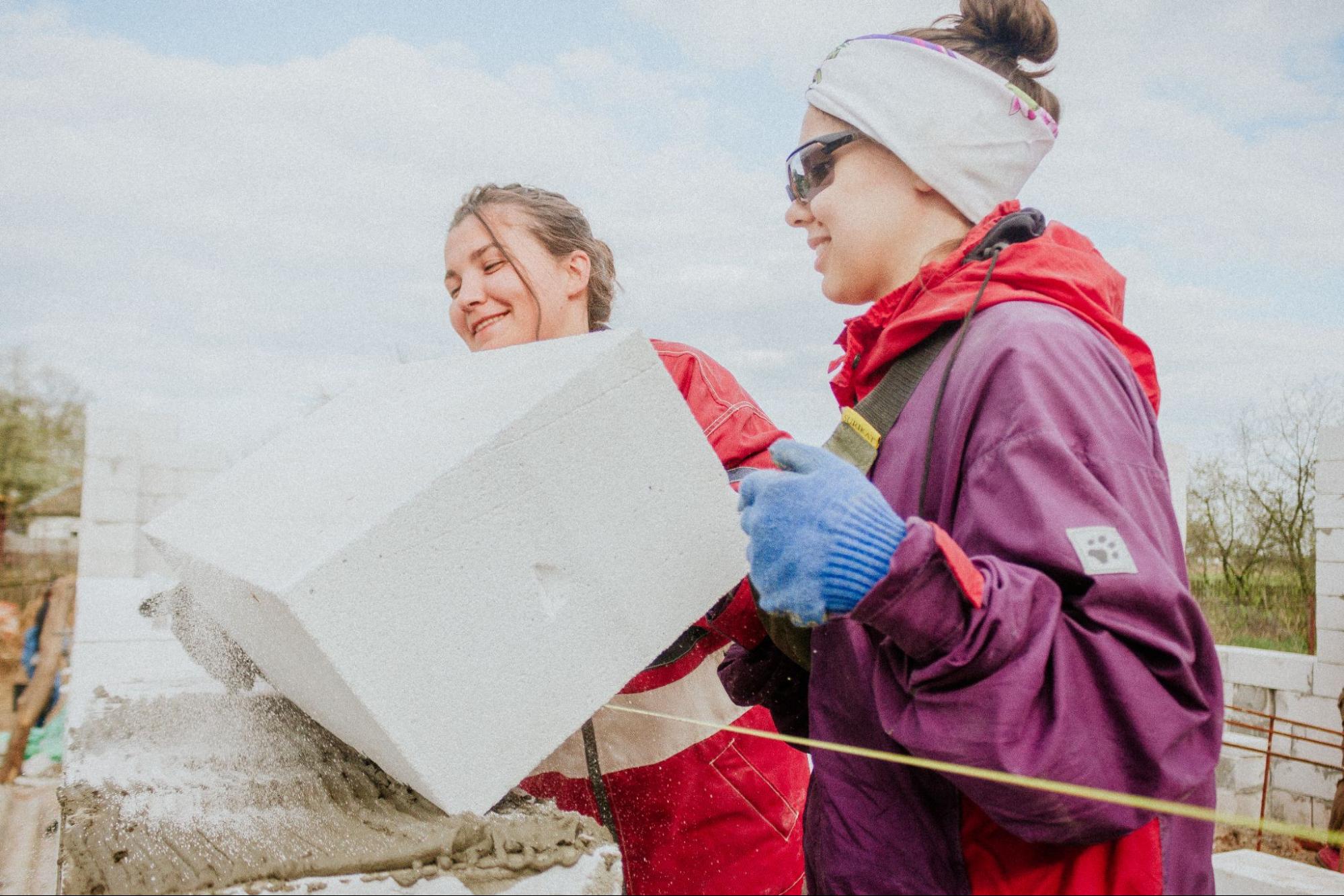
Building process. Photo: Repair Together
The initiative's co-founders, Daria Kosiakova and Vika Afanasieva, decided it was time to break all stereotypes and prove that women had a place at construction sites. This idea gave birth to the project Velyke Divnytstvo ("The Great Women's Build"), in which an all-female team independently builds homes.
Daria adds that beyond honoring their values, co-founders wanted this project to be a safe space for women to learn and develop construction skills if they wish to:
"I can confidently say this is a place where no one is surprised or scared if you don't know how to do something. They'll show you how, and you'll pick it up."
Velyke Divnytstvo is not about distancing from men; it's about proving that everyone is equal. Rubryka yells out the project here.
"Pink October"

Pink desserts for Pink October. Photo: Fight Cancer Foundation
According to the Ministry of Health, around 110 women in Ukraine die from breast cancer each week. Most cases are found in women over 60, but in recent years, breast cancer has also become more common among younger women. Each year, approximately 15,000 new cases are diagnosed in Ukraine.
Pink October is a global campaign aimed at raising awareness about breast cancer. It highlights the importance of early detection and supports women battling the disease. Breast cancer is one of the most common and dangerous cancers among women, but it can be treated successfully in 95% of cases if detected early.
Every October, various awareness events and initiatives are held worldwide, including in Ukraine, to encourage early detection and spread information about breast cancer. Ukrainian cafés have also joined the effort to remind women of the importance of health checks. Rubryka tells about one of such cafés in its material.
"Barrier-free Salon"
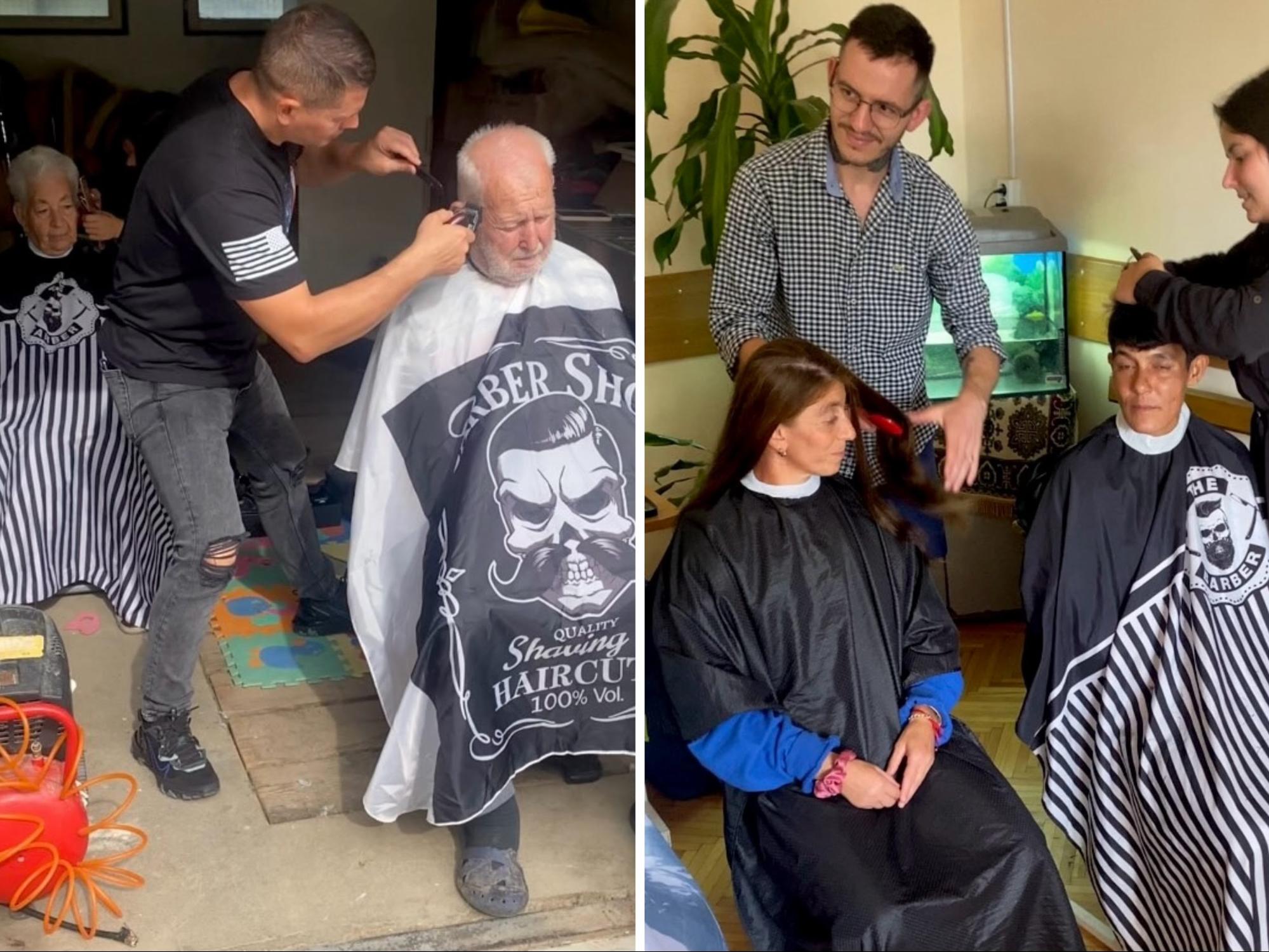
Hairdressers at the Barrier-Free Salon working. Photo from the project's archive
For older people, people with disabilities, and those suffering from severe illnesses in Ukraine, access to basic services often feels like a privilege they can't afford. Social isolation, lack of resources, and the fact that cities aren't designed to accommodate people with limited mobility only increase the sense of inequality.
"I was moved by the story of a young woman with cerebral palsy who said she couldn't even get into the store near her house because of the steps. She also couldn't access a beauty shop to buy skincare products because none had proper ramps," says Natalia Chipko, an esthetician from the western city of Mukachevo.
A few months ago, Natalia Chipko joined a charity project called "Barrier-Free Salon," launched by the Ukrainian nonprofit organization Barrier-free Transcarpathia in Mukachevo. This initiative helps people with limited mobility care for themselves by offering free beauty services to those who can't visit salons. Thanks to the efforts of volunteer stylists, the Barrier-Free Salon not only improves clients' appearances but also boosts their mental well-being and promotes social integration. Rubryka tells about the initiative here.
The House of Butterflies
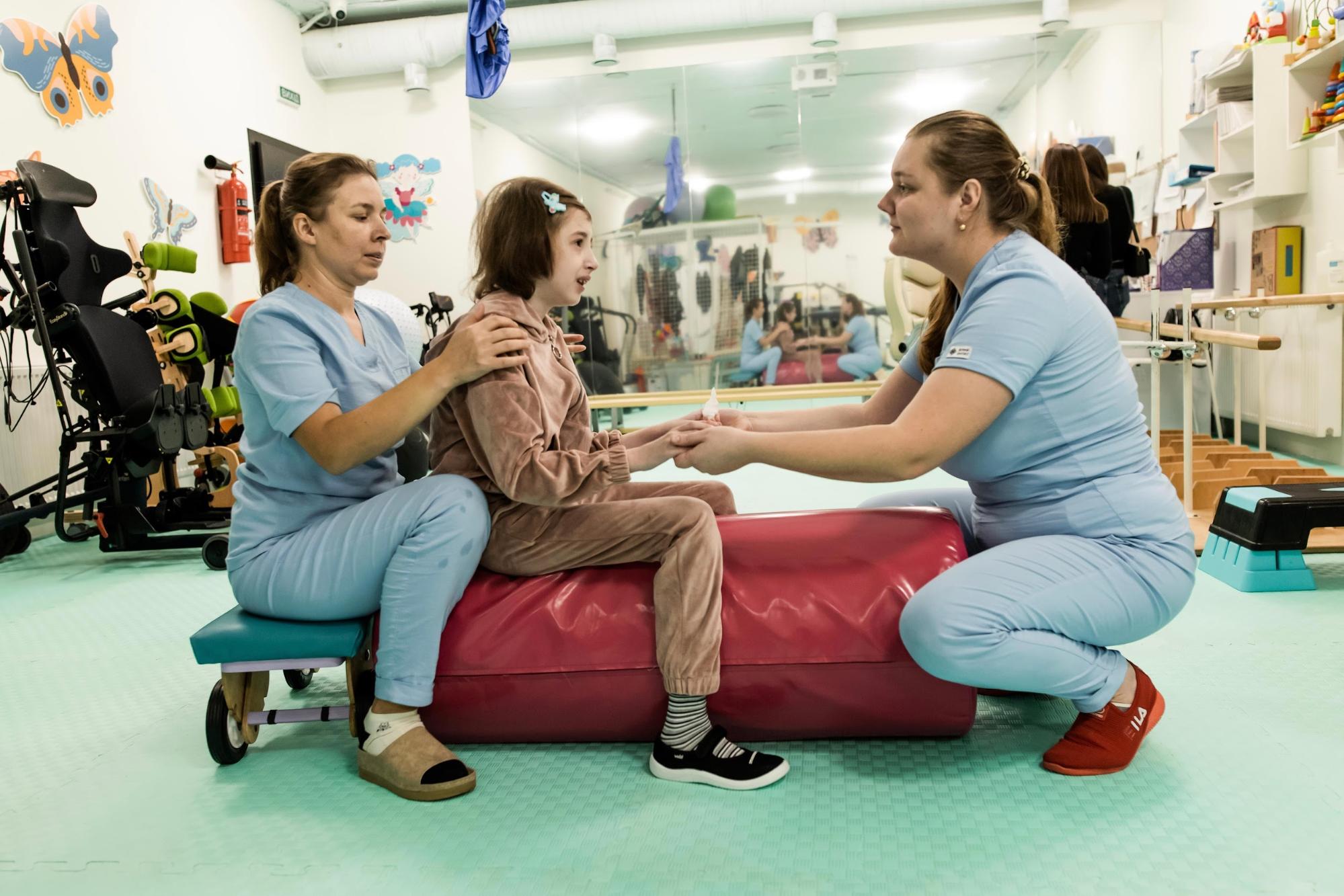
In rehabilitation classes. Photo: The City of Goodness
The City of Goodness, a nationwide charity project that supports mothers and children in difficult life circumstances. Established in the lovely southwestern city of Chernivtsi before the war, the project has continued to grow despite the challenges of wartime. Today, it has six buildings that provide shelter for children without parental care, women who have lost their homes, and survivors of domestic violence. A year ago, the City of Goodness had a vital addition — an official medical center called "The House of Butterflies." Here, the staff are nothing short of magicians: rehabilitators, neuropsychologists, speech therapists, neurologists, orthopedic doctors, nurses, and caregivers. They provide professional care to children battling severe illnesses and offer them love, faith, and hope for a new day. On World Hospice and Palliative Care Day, Rubryka shares the story of the House of Butterflies.
"Comma Under the Sun"
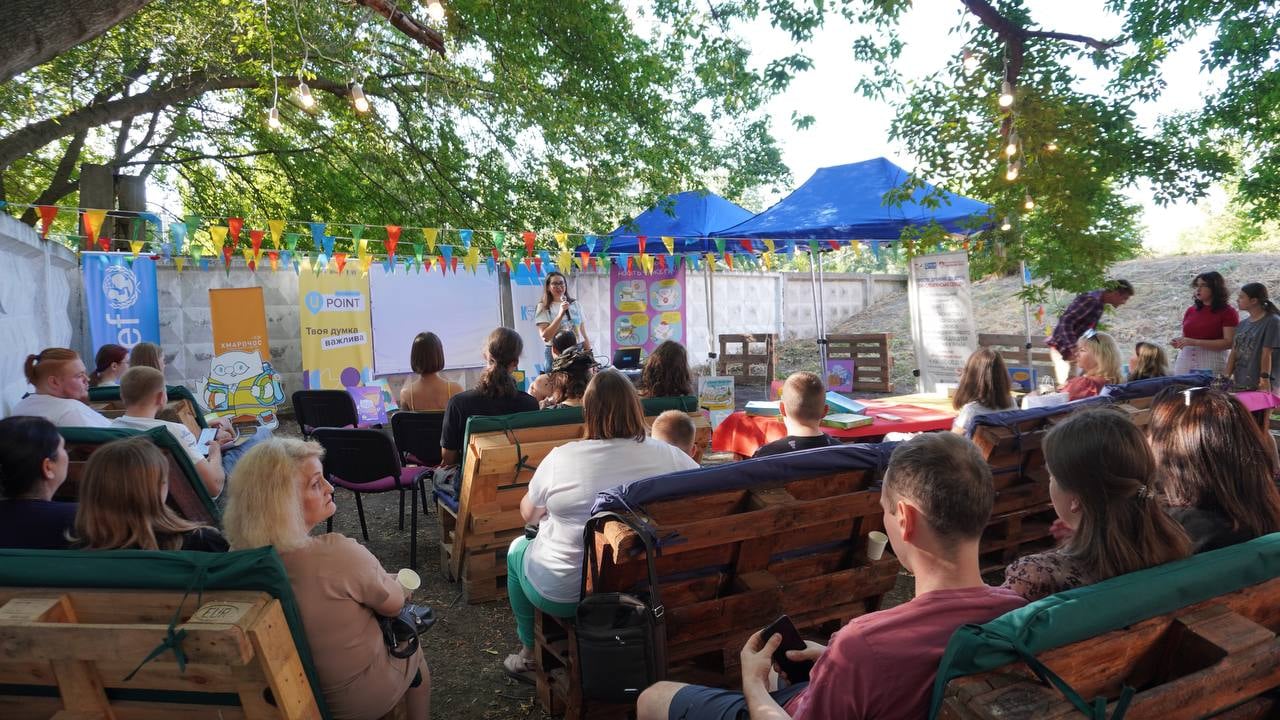
At the opening of the summer cinema "Comma Under the Sun." Photo from the archives of the Comma center
Kropyvnytskyi is home to many active and creative young people. Due to the war, an additional 27,000 children and teenagers have relocated here from other regions of Ukraine. While the city has some places where young people can connect, share ideas, make friends, and develop, with the arrival of warm weather, there was a lack of a creative and comfortable outdoor space.
If the community doesn't have an outdoor youth space, you need to create one yourself! This is exactly what the young people from the "Comma" youth center in Kropyvnytskyi decided to do. As a result, a new spot appeared in the city this summer—an open-air cinema that will operate until the cold weather arrives and reopen when it warms up again. Rubryka shares the initiative's way to success here.
Veteran Theatre
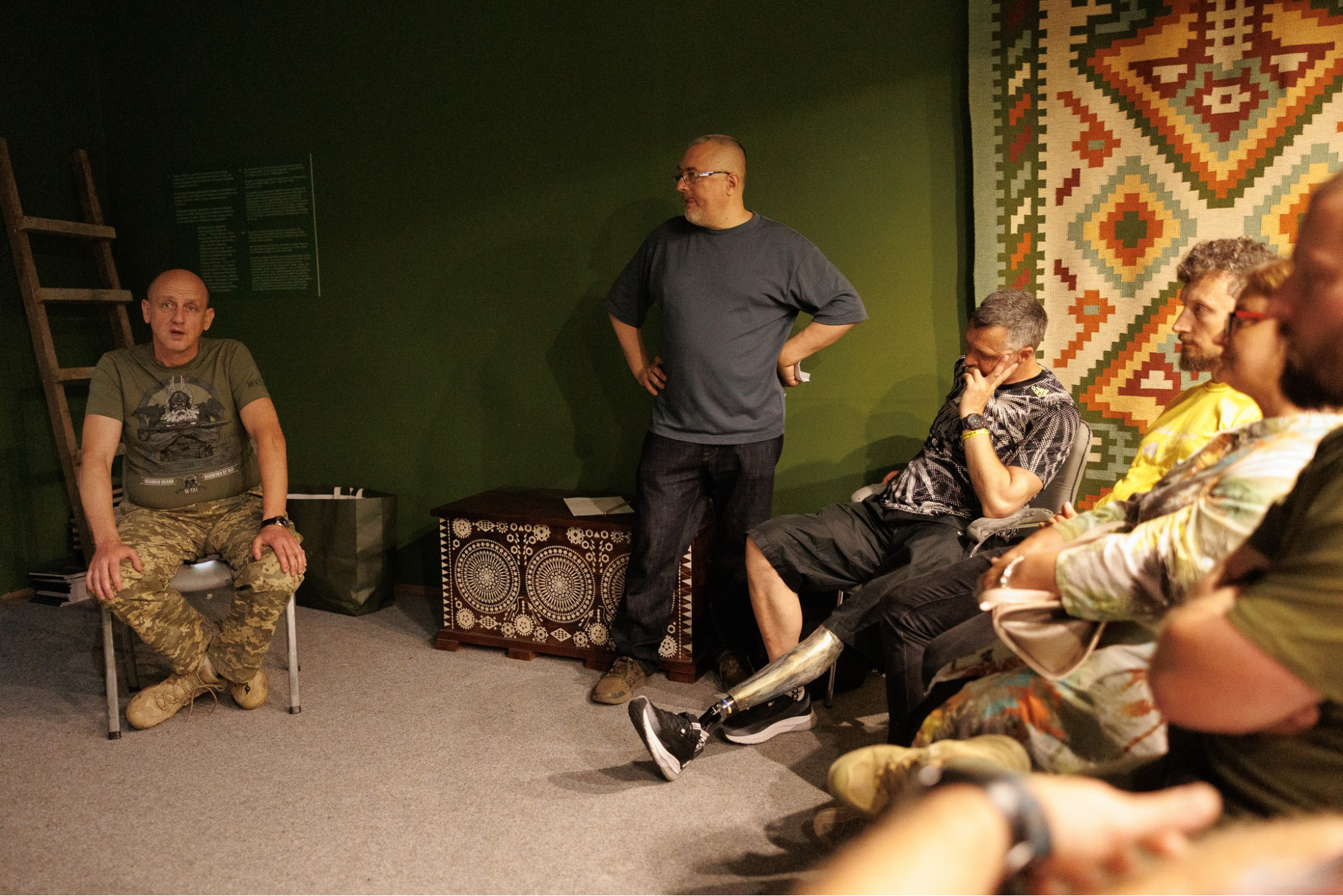
Veteran Theatre. Photo: Veteran Theater Facebook
Transforming personal traumatic experiences into a play and bringing it to the stage serves as a path to rehabilitation and reintegration for veterans. This is the belief of the founders of the Veteran Theater project, who train veterans in playwriting. Rubryka spoke with a veteran participant and one of the co-founders to explore how this approach works.
We are also publishing an excerpt from the monologue play "Explosion" by veteran Yuri Vetkin.
Take a House under Guardianship
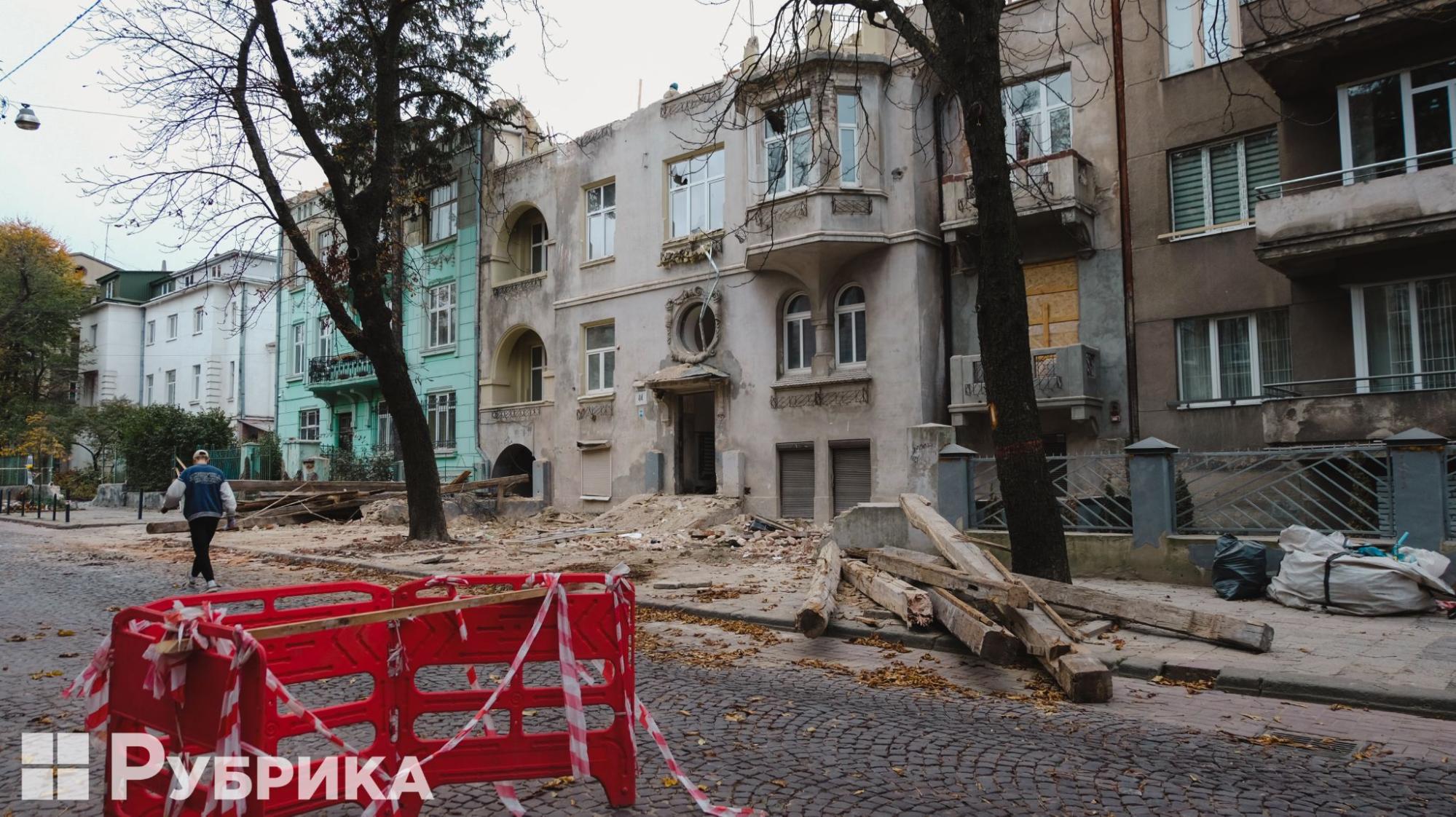
On September 4, Russian forces launched a drone and missile attack on Lviv, resulting in damage to 189 houses, injuring 60 people, and causing 8 fatalities. The assault inflicted significant harm on the city. In response, Mayor Andrii Sadovyi initiated the "Take a House Under Guardianship" project to facilitate the restoration of the damaged buildings. Nearly two months have passed since the attack, and here's an update on the current status of this initiative.
Underground trash containers: Is it an effective solution?
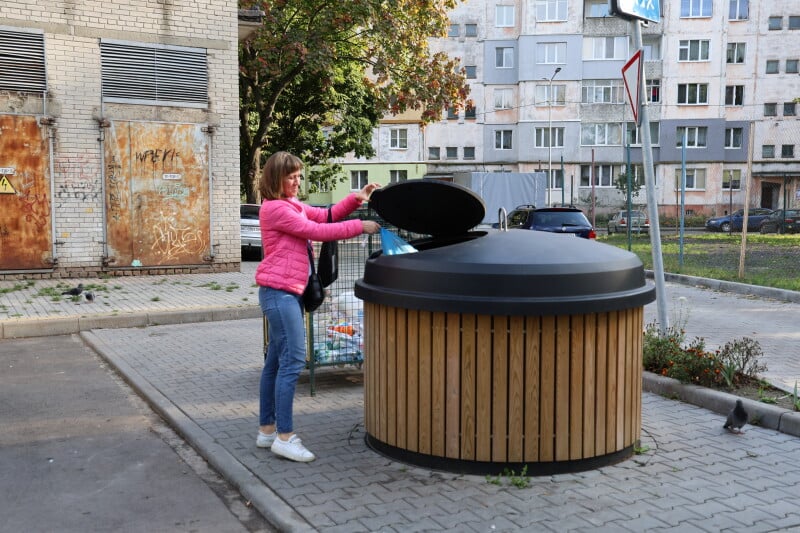
A semi-underground garbage container in action. Photo: Lutsk City Council
According to environmental experts, each person in Ukraine produces around 300 kg of household waste annually. In large cities, most of this waste ends up in regular trash containers, often placed right next to residential buildings. The problem with these open containers is that trash can be blown away by the wind or scattered by animals. They also tend to leak, causing foul odors and attracting pests.
To address the problem, many cities in Ukraine, including Lutsk, chose to install containers underground. For the second year in a row, Lutsk has been replacing the traditional open trash containers with semi-underground ones — the upgrade is part of a city program to replace old containers for collecting solid household waste. Rubryka looks at Lutsk as an example to see whether this solution makes sense.
Newsletter
Digest of the most interesting news: just about the main thing




